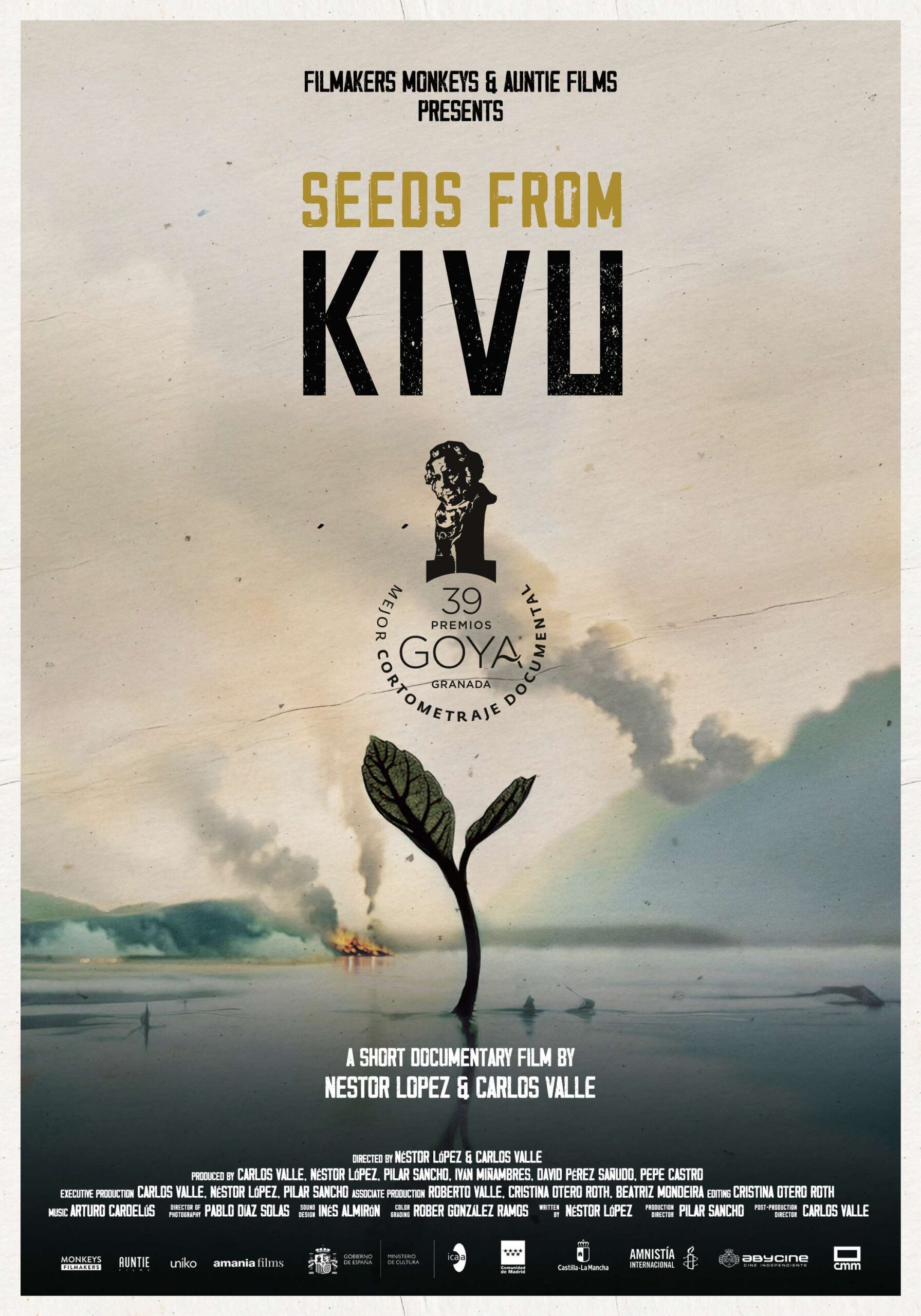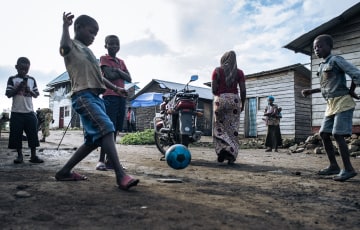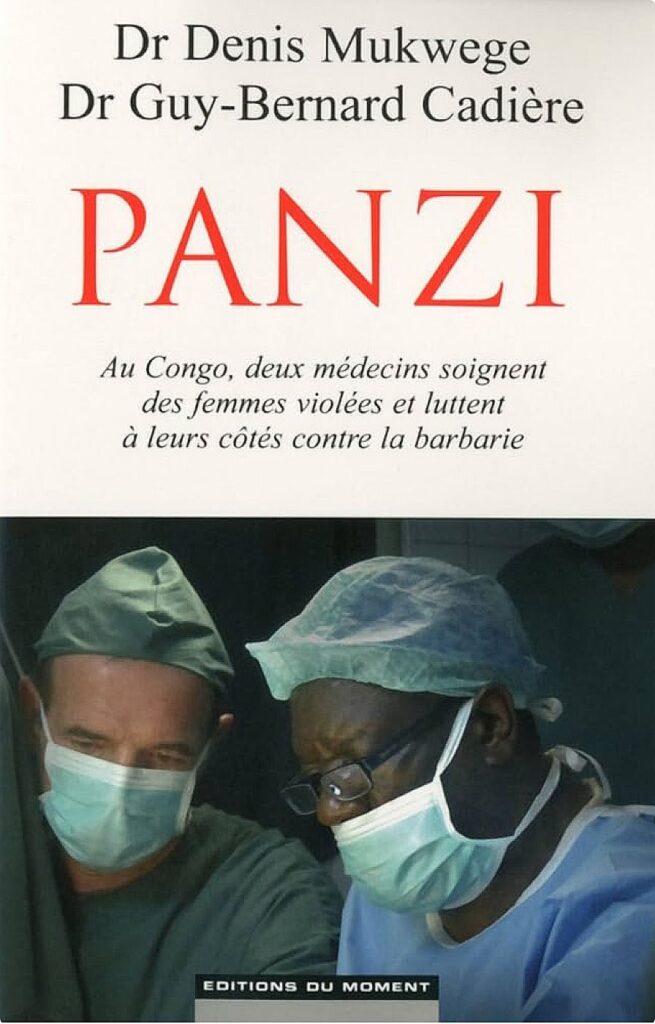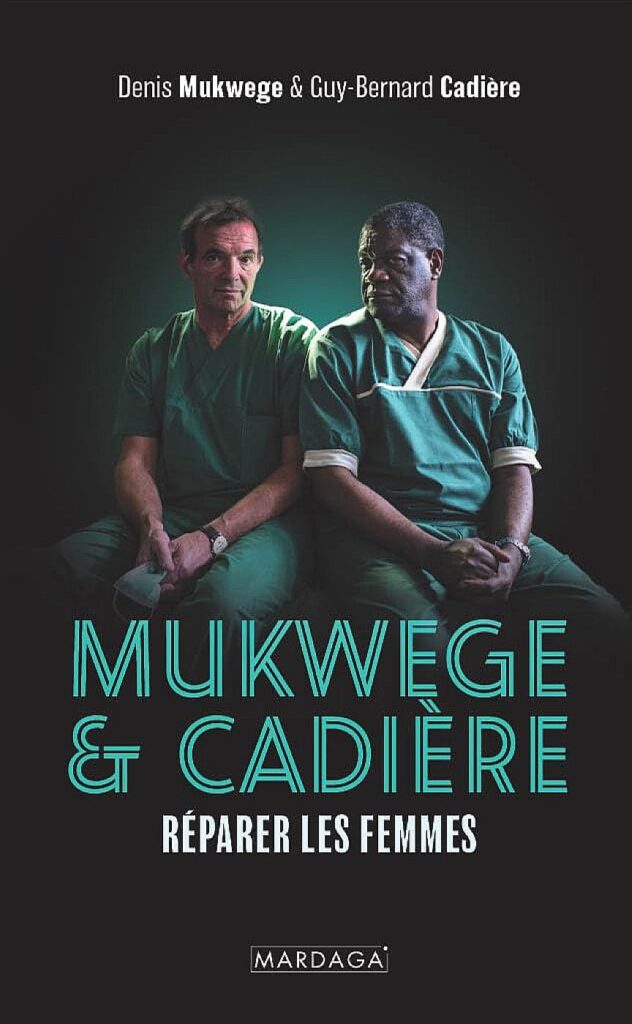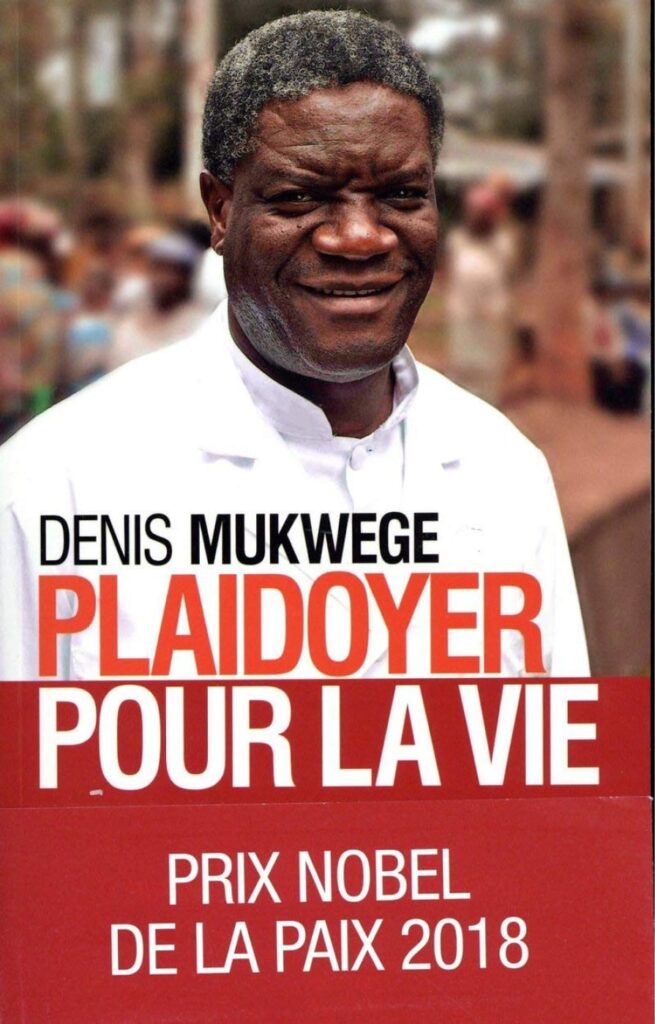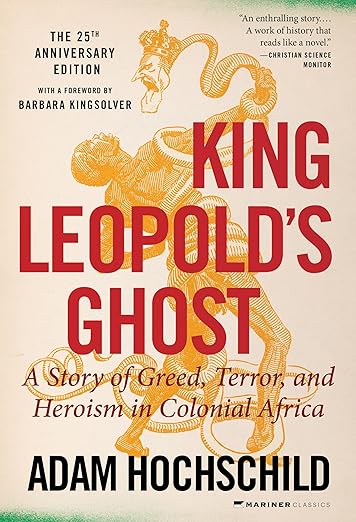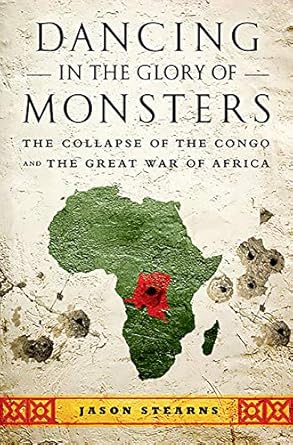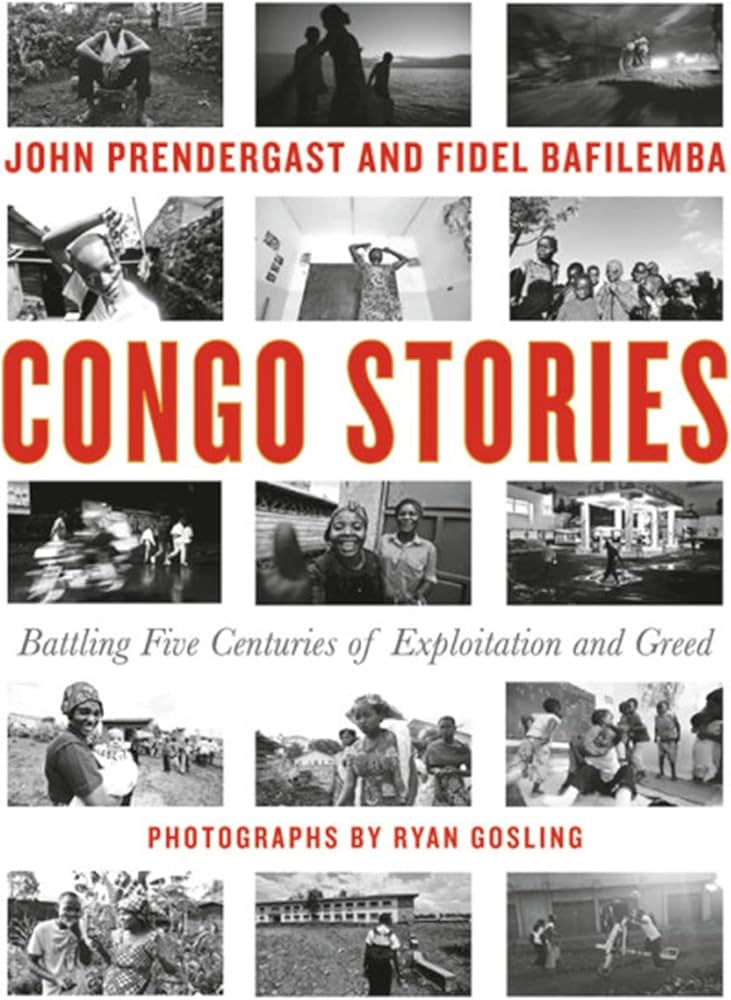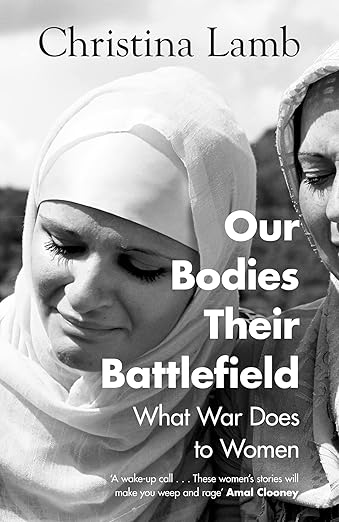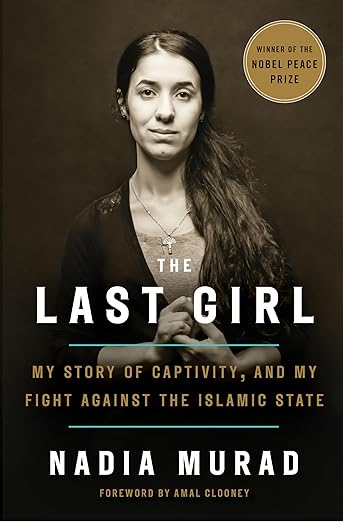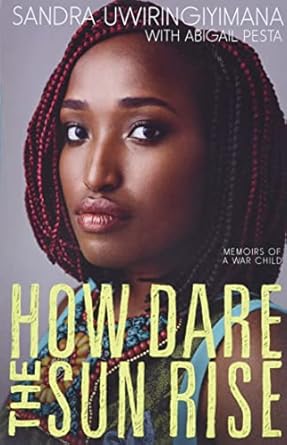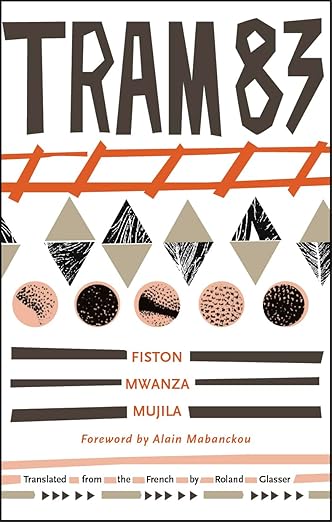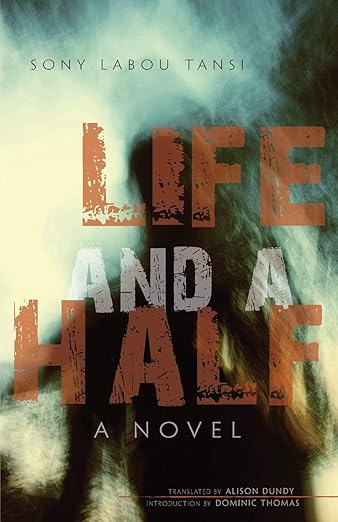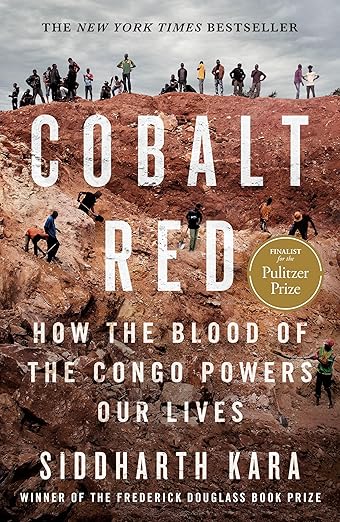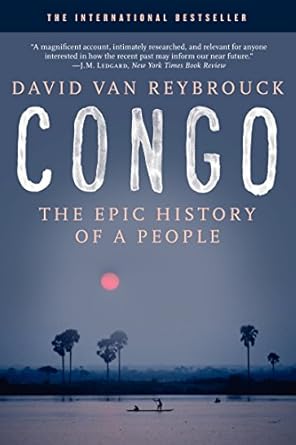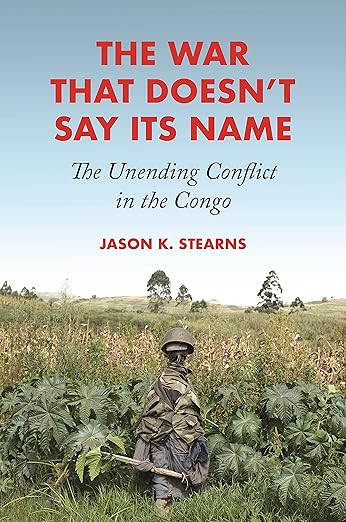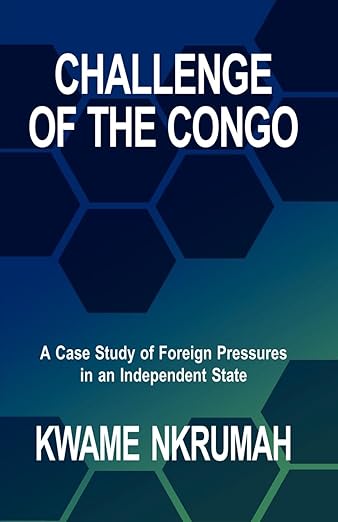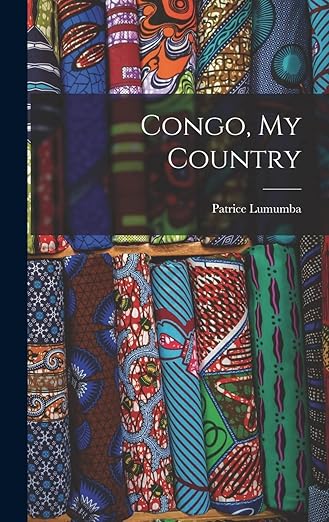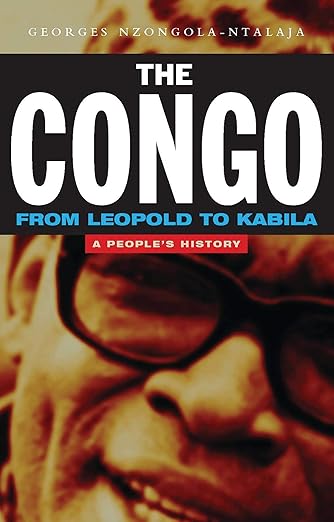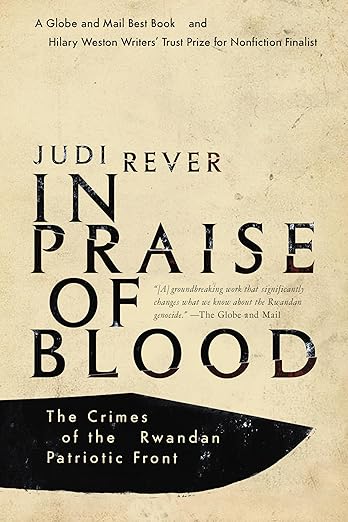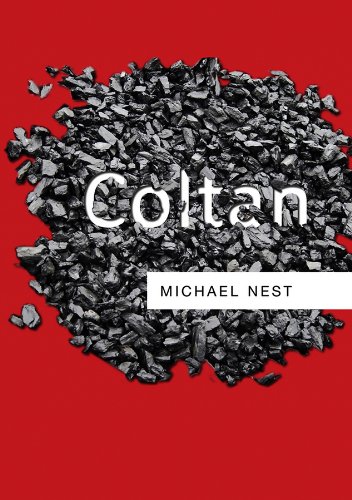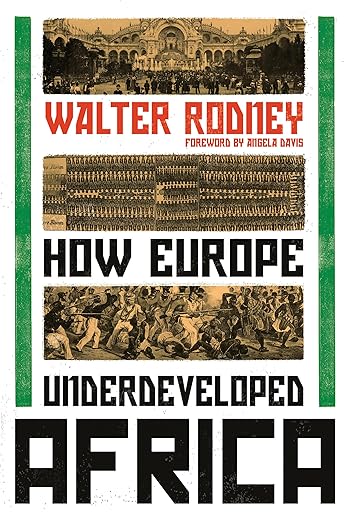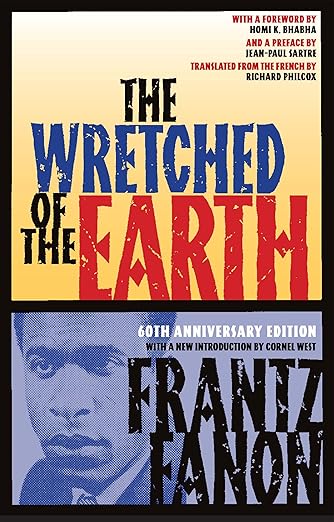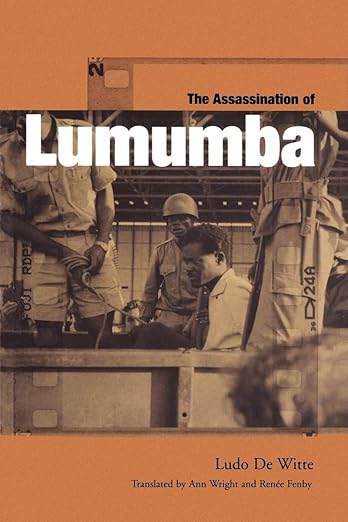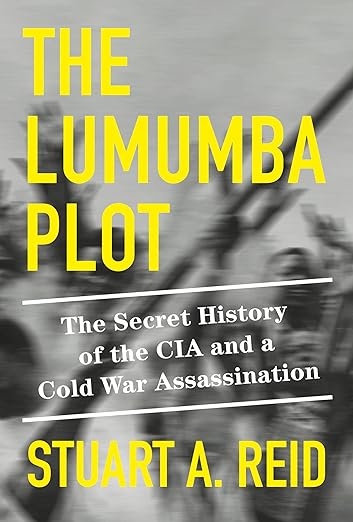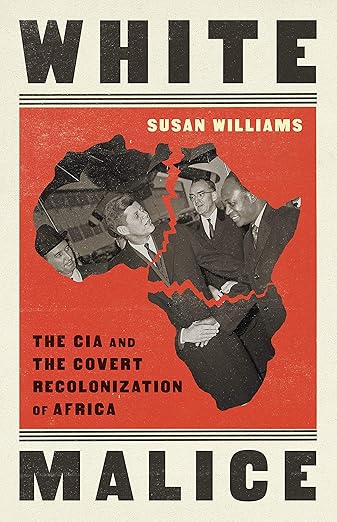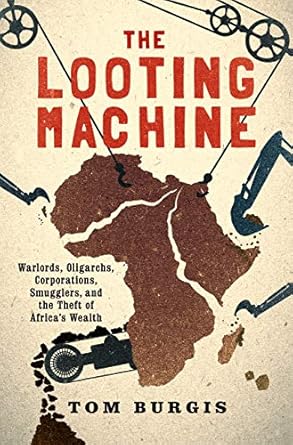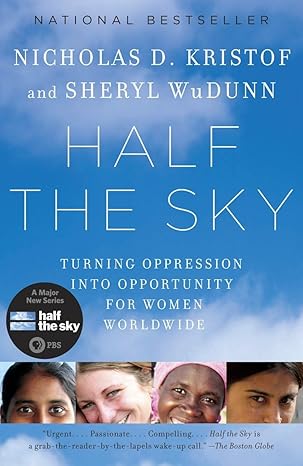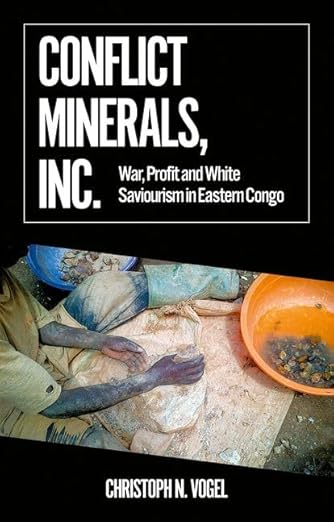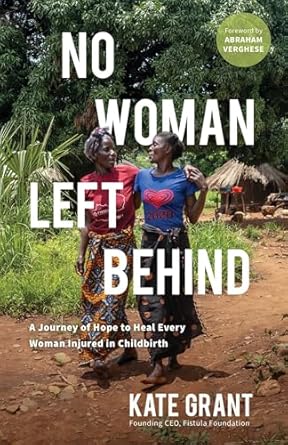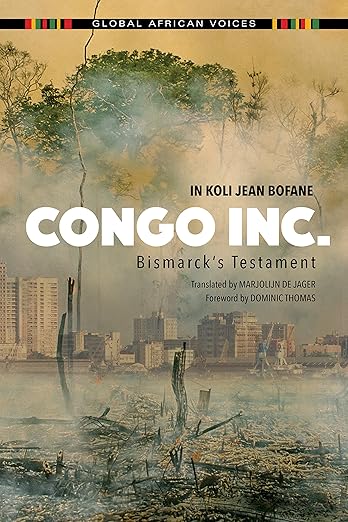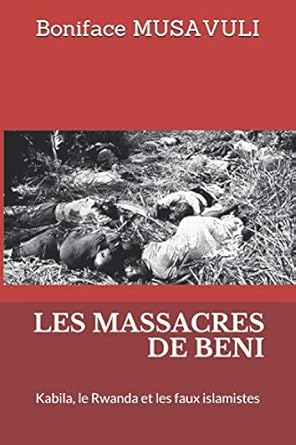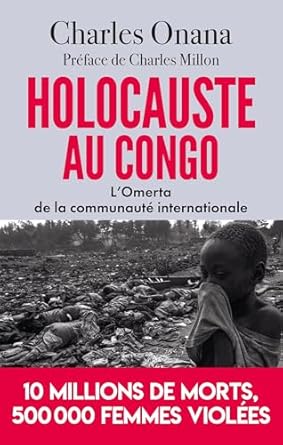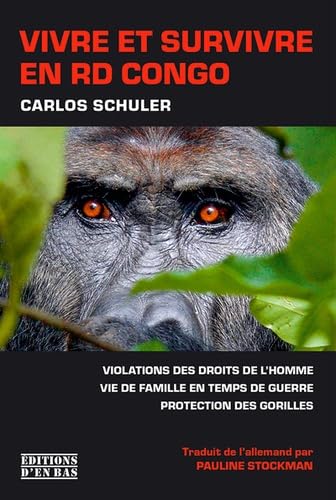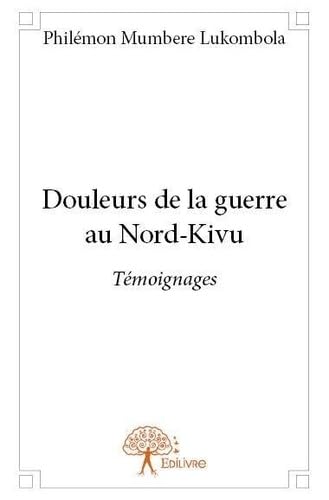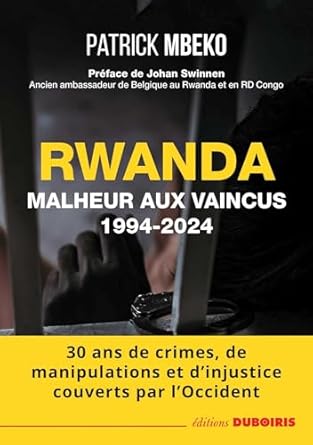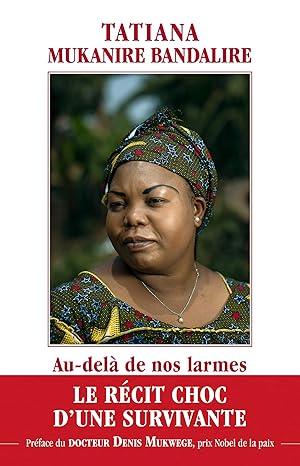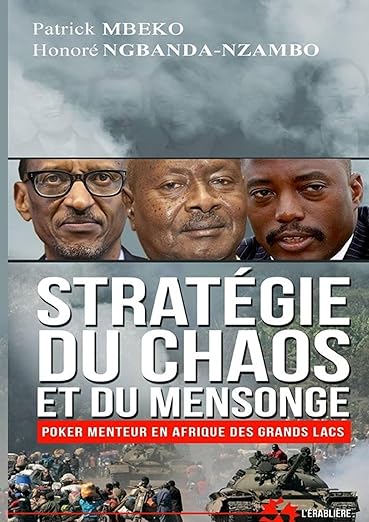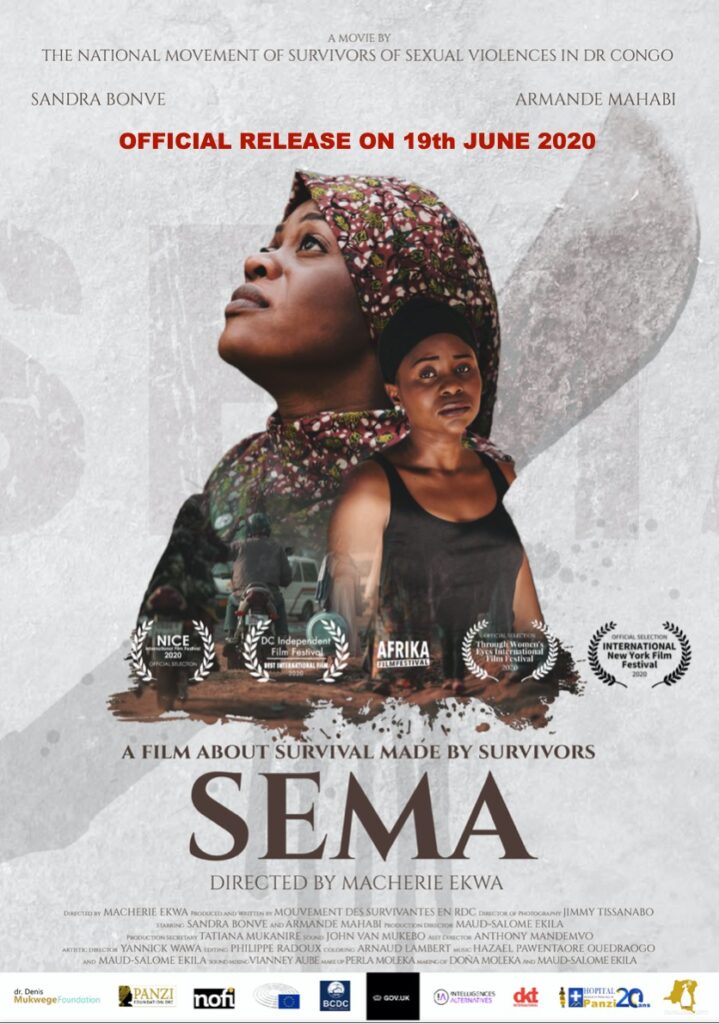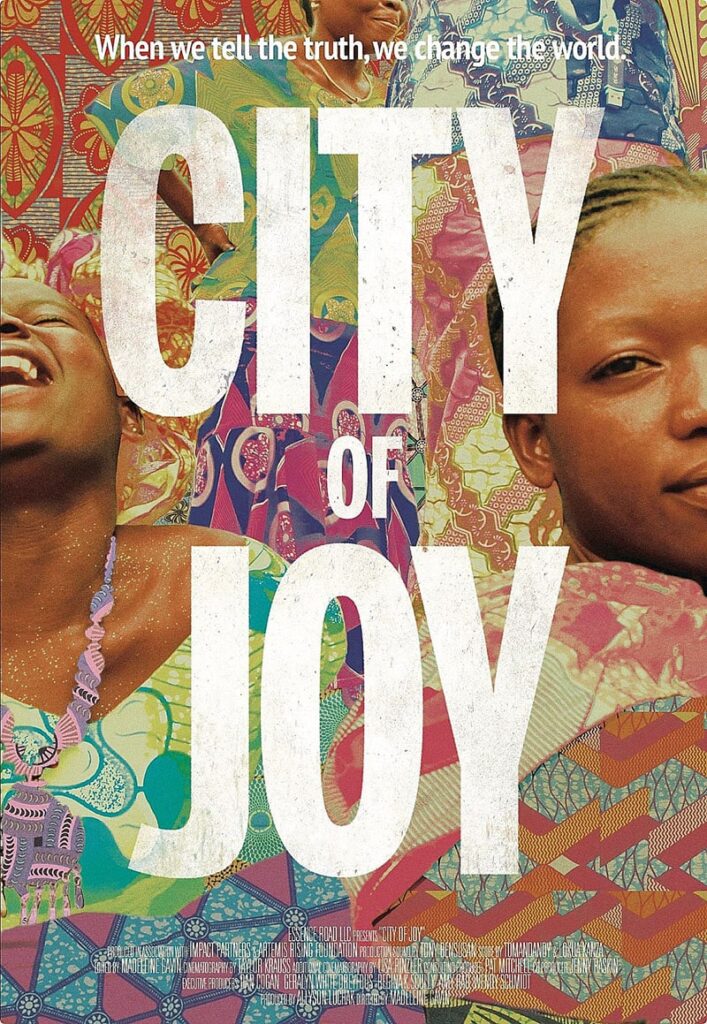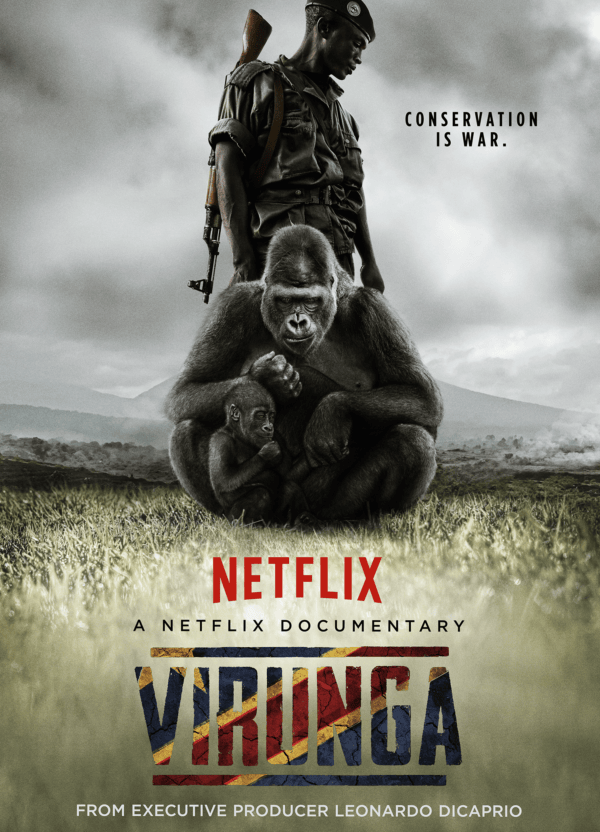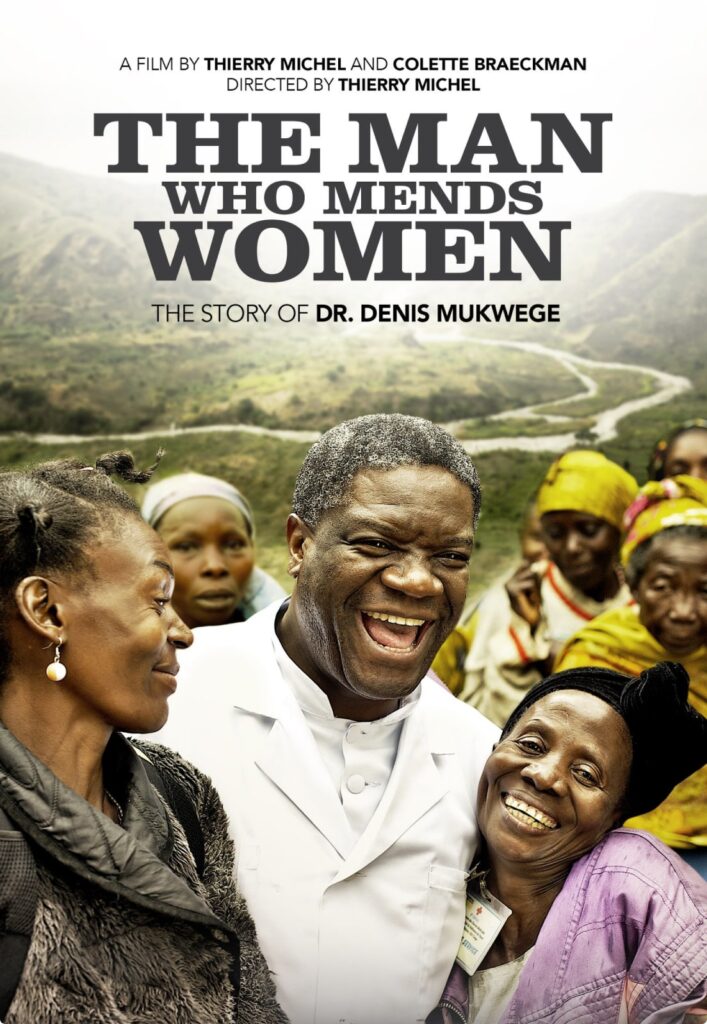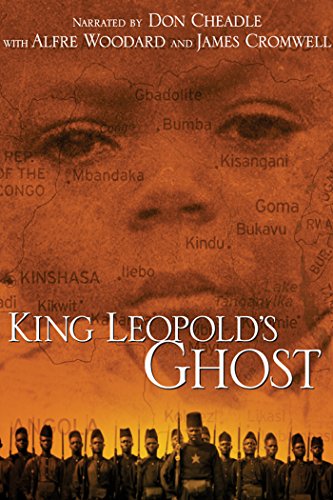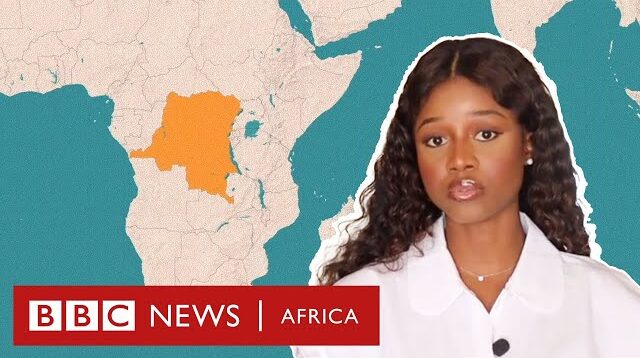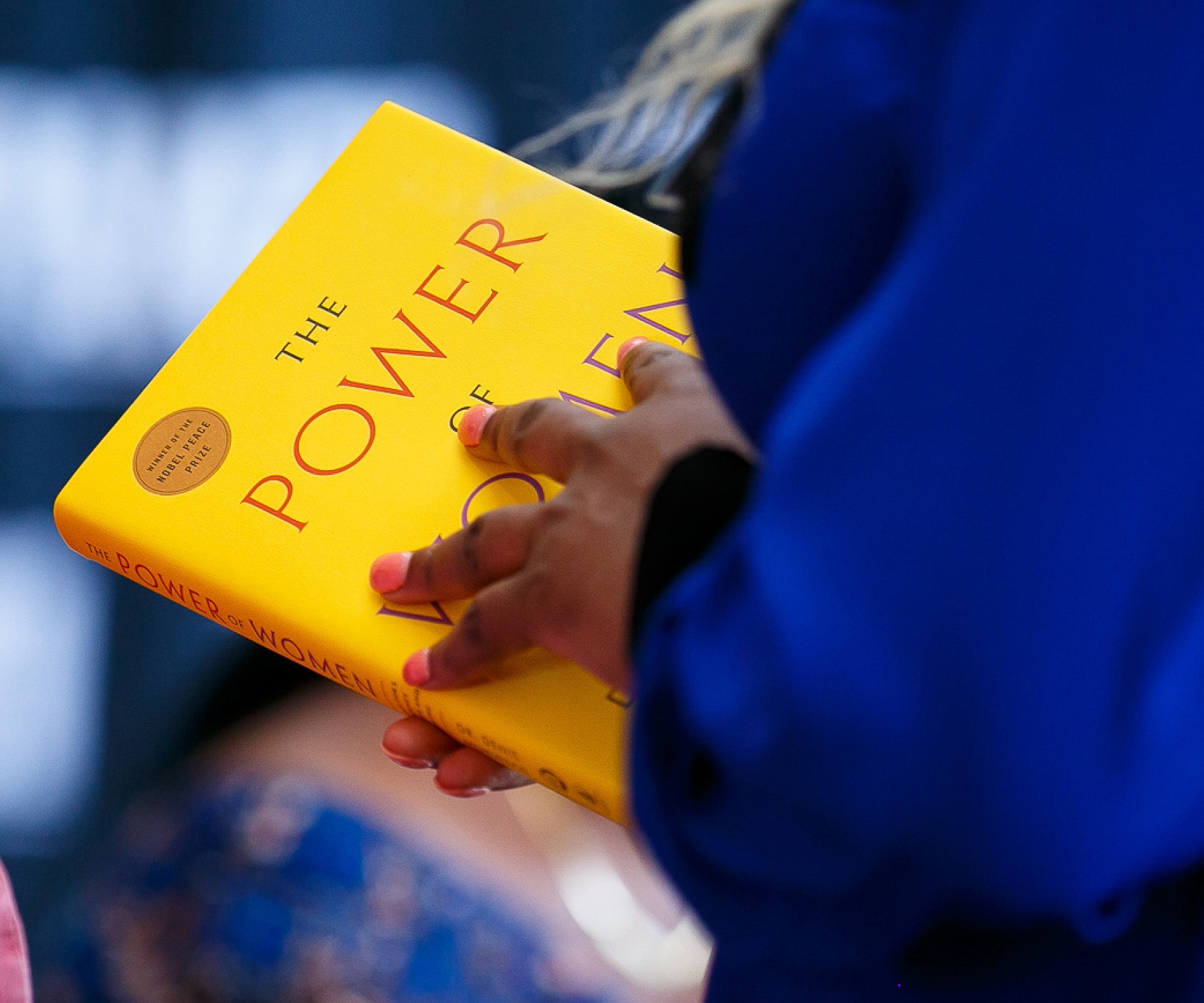
Who We Are
Recommended Reading & Watching
The Power of Women by Dr. Denis Mukwege
In this riveting and moving biography, Dr. Denis Mukwege reflects on his life and the powerful women who shaped it. From his mother, whose own mother died giving birth to her; to the very first survivors of sexual violence that he treated at Panzi Hospital, Dr. Mukewge illustrates how we can all learn from the power and resilience of women to heal our world. The Power of Women explores how corruption, violence and rape as a weapon of war are inextricably linked, and how the global community has a responsibility to take action and demand accountability.
Get the book:
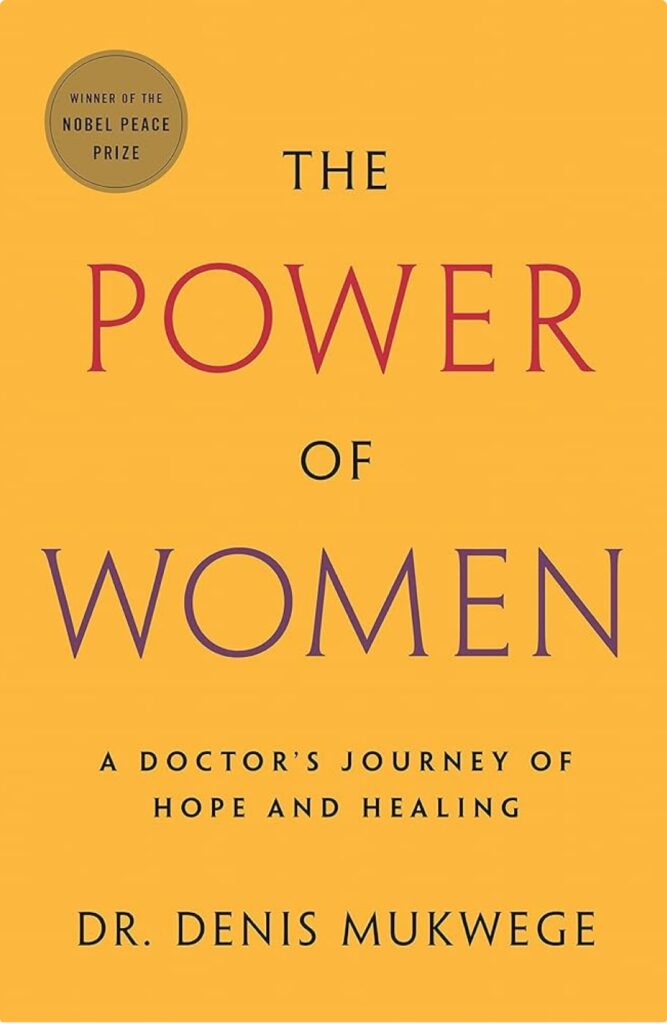
The book we all need to be paying attention to now. The voices of women in Eastern Congo reverberate throughout Dr. Mukwege's moving account of the causes and consequences of sexual violence.
Emma Watson,
Actor & Activist
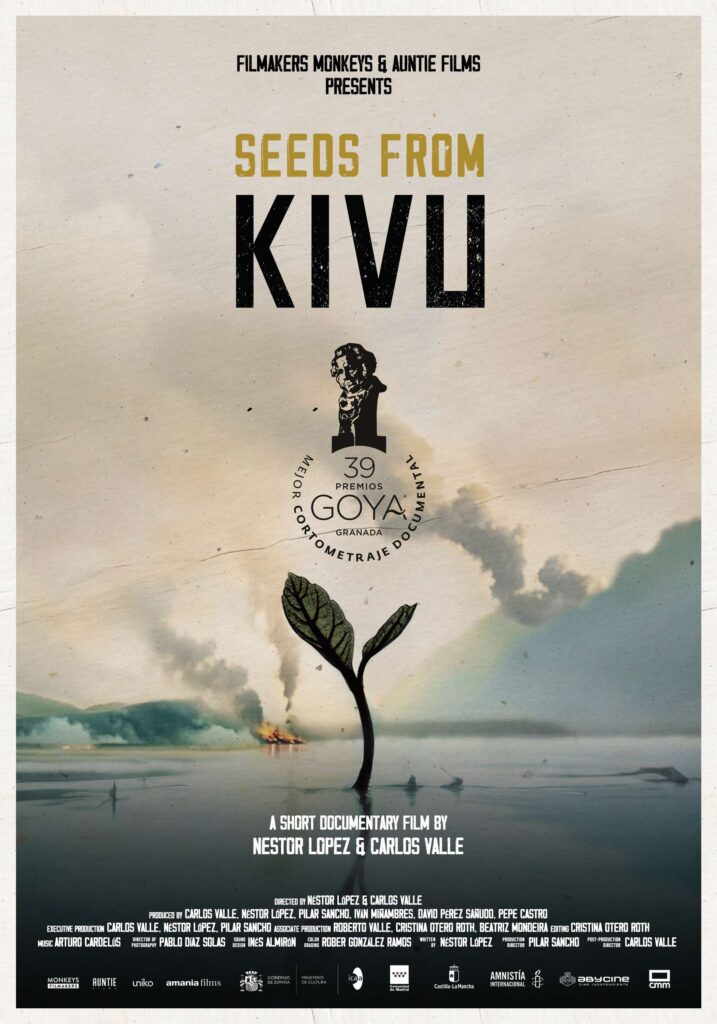
SEEDS FROM KIVU
Directed by Carlos Valle & Néstor López, Seeds from Kivu (Semillas de Kivu) takes viewers to the breathtaking yet conflict-ridden Kivu region on the borders of Rwanda and the Democratic Republic of Congo. Here, armed groups fight for control over mineral resources essential to global technology, while women and girls endure brutal rapes, which used as weapons of war. The film follows survivors as they arrive at Panzi Hospital, where Dr. Denis Mukwege and his team provide lifesaving medical care and psychological support, helping them reclaim their dignity, reintegrate into society, and build productive lives. By focusing on the strength, resilience, and agency of these women, Seeds from Kivu offers a deeply human perspective on the ongoing violence in eastern Congo, while honoring the courage of survivors and the transformative work of Panzi Hospital.
This short documentary is a powerful tribute to survival and hope, showing that even in the face of unimaginable trauma, healing and empowerment are possible.
Get the book:
Seeds from Kivu captures the heart of our work at Panzi: restoring dignity, healing deep wounds, and standing with survivors as they rebuild their lives. In a time when conflict is intensifying, this film is a vital call for solidarity and for peace in Congo.
Dr. Denis Mukwege
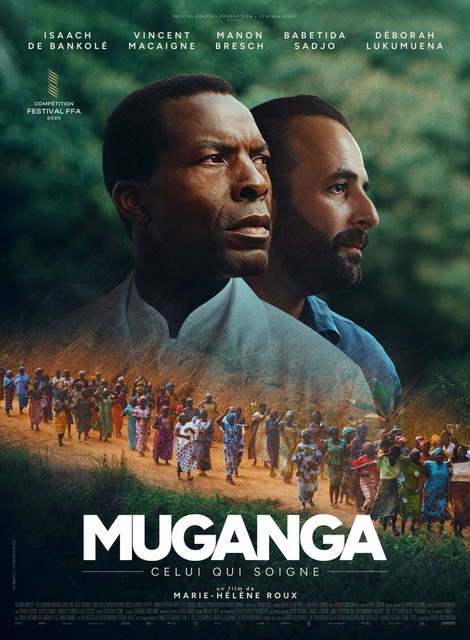
MUGANGA, The One Who Treats
Get the book:
I don't usually post about film, but this is less about film and more about a globally overlooked issue...This is not an issue isolated to the DRC, but a crime carried out globally. If global leaders were even a fraction as brave and committed as Dr Mukwege, then it might finally meet the response it deserves.
Angelina Jolie
Books By and about Dr Mukwege:
More Recommendations about the DRC:
Books
A tale far richer than any novelist could invent, King Leopold’s Ghost is the horrifying account of a megalomaniac of monstrous proportions. It is also the deeply moving portrait of those who defied Leopold: African rebel leaders who fought against hopeless odds and a brave handful of missionaries, travelers, and young idealists who went to Africa for work or adventure but unexpectedly found themselves witnesses to a holocaust and participants in the twentieth century’s first great human rights movement.
At the heart of Africa is the Congo, a country the size of Western Europe, bordering nine other nations, that since 1996 has been wracked by a brutal war in which millions have died. In Dancing in the Glory of Monsters, renowned political activist and researcher Jason K. Stearns has written a compelling and deeply-reported narrative of how Congo became a failed state that collapsed into a war of retaliatory massacres.
Michela Wrong, a correspondent who witnessed firsthand Mobutu’s last days, traces the rise and fall of the idealistic young journalist who became the stereotype of an African despot. Engrossing, highly readable, and as funny as it is tragic, her book assesses how Belgium’s King Leopold, the CIA, and the World Bank all helped to bring about the disaster that is now the Democratic Republic of Congo.
From the author of the New York Times bestselling and award-winning Not on Our Watch, John Prendergast co-writes a compelling book with Fidel Bafilemba–with stunning photographs by Ryan Gosling–revealing the way in which the people and resources of the Democratic Republic of Congo have been used throughout the last five centuries to build, develop, advance, and safeguard the United States and Europe. The book highlights the devastating price Congo has paid for that support.
These womens stories will make you weep and rage at the world’s indifference. From award-winning war reporter and co-author of I Am Malala, this is the first major account to address the scale of rape and sexual violence in modern conflict. In Our Bodies, Their Battlefield Christina Lamb gives voice to the women of conflicts, exposing how in todays warfare, rape is used by armies, terrorists and militias as a weapon to humiliate, oppress and carry out ethnic cleansing.
On August 15th, 2014, when Nadia was just twenty-one years old, this life ended. Islamic State militants massacred the people of her village, executing men who refused to convert to Islam and women too old to become sex slaves. Six of Nadia’s brothers were killed, and her mother soon after, their bodies swept into mass graves. Nadia was taken to Mosul and forced, along with thousands of other Yazidi girls, into the ISIS slave trade.
This profoundly moving memoir is the remarkable and inspiring true story of Sandra Uwiringiyimana, a girl from the Democratic Republic of the Congo who tells the tale of how she survived a massacre, immigrated to America, and overcame her trauma through art and activism.
Two friends, one a budding writer home from abroad, the other an ambitious racketeer, meet in the most notorious nightclub Tram 83 in a war-torn city-state in secession, surrounded by profit-seekers of all languages and nationalities. Tram 83 plunges the reader into the modern African gold rush as cynical as it is comic and colorfully exotic, using jazz rhythms to weave a tale of human relationships in a world that has become a global village.
Listed as one of the 100 best books on Africa, Life and a Half was Sony Labou Tansi’s response to the death of close friends during a bloody military and political crackdown in Congo. The novel takes place in an imaginary African country run by the latest in a series of cannibalistic dictators who has captured Martial, the leader of the opposition, and his family. Though shot, knifed, butchered, and bled, Martial’s spirit lives on to guide his followers in their fight against the dictators.
Cobalt Red is the searing, first-ever exposé of the immense toll taken on the people and environment of the Democratic Republic of the Congo by cobalt mining, as told through the testimonies of the Congolese people themselves. Activist and researcher Siddharth Kara has traveled deep into cobalt territory to document the testimonies of the people living, working, and dying for cobalt. To uncover the truth about brutal mining practices, Kara investigated militia-controlled mining areas, traced the supply chain of child-mined cobalt from toxic pit to consumer-facing tech giants, and gathered shocking testimonies of people who endure immense suffering and even die mining cobalt.
From the beginnings of the slave trade through colonization, the struggle for independence, Mobutu’s brutal three decades of rule, and the civil war that has raged from 1996 to the present day, Congo: The Epic History of a People traces the history of one of the most devastated nations in the world. Esteemed scholar David Van Reybrouck balances hundreds of interviews with a diverse range of Congolese with meticulous historical research to construct a multidimensional portrait of a nation and its people.
Well into its third decade, the military conflict in the Democratic Republic of the Congo has been dubbed a “forever war”―a perpetual cycle of war, civil unrest, and local feuds over power and identity. Millions have died in one of the worst humanitarian calamities of our time. The War That Doesn’t Say Its Name investigates the most recent phase of this conflict, asking why the peace deal of 2003―accompanied by the largest United Nations peacekeeping mission in the world and tens of billions in international aid―has failed to stop the violence.
Challenge of the Congo Kwame Nkrumah First published in 1967, this book provides a contemporary account of Congo’s recent history by one of the Heads of State most closely involved.
This work has been selected by scholars as being culturally important and is part of the knowledge base of civilization as we know it. Scholars believe, and we concur, that this work is important enough to be preserved, reproduced, and made generally available to the public.
The people of the Congo have suffered from a particularly brutal colonial rule, American interference after independence, decades of robbery at the hands of the dictator Mobutu and periodic warfare which continues even now in the East of the country. This book is essential reading for understanding what is happening in the Congo and the Great Lakes region under the rule of the late President Kabila, and now his son. It will also stand as a milestone in how to write the modern political history of Africa.
Through unparalleled interviews with RPF defectors, former soldiers and atrocity survivors, supported by documents leaked from a UN court, Judi Rever brings us the complete history of the Rwandan genocide. Considered by the international community to be the saviours who ended the Hutu slaughter of innocent Tutsis, Kagame and his rebel forces were also killing, in quiet and in the dark, as ruthlessly as the Hutu genocidaire were killing in daylight.
A decade ago no one except geologists had heard of tantalum or ‘coltan’ – an obscure mineral that is an essential ingredient in mobile phones and laptops. Then, in 2000, reports began to leak out of Congo: of mines deep in the jungle where coltan was extracted in brutal conditions watched over by warlords. The United Nations sent a team to investigate, and its exposé of the relationship between violence and the exploitation of coltan and other natural resources contributed to a re-examination of scholarship on the motivations and strategies of armed groups.
A landmark text for revolutionaries and activists, The Wretched of the Earth is an eternal touchstone for civil rights, anti-colonialism, psychiatric studies, and Black consciousness movements around the world. Alongside Cornel West’s introduction, the book features critical essays by Jean-Paul Sartre and Homi K. Bhabha.
This book unravels the appalling mass of lies, hypocrisy and betrayals that have surrounded accounts of the assassination since it perpetration. Making use of a huge array of official sources as well as personal testimony from many of those in the Congo at the time, Ludo De Witte reveals a network of complicity ranging from the Belgian government to the CIA. Chilling official memos which detail ‘liquidation’ and ‘threats to national interests’ are analysed alongside macabre tales of the destruction of evidence, putting Patrice Lumumba’s personal strength and his dignified quest for African unity in stark contrast with one of the murkiest episodes in twentieth-century politics.
It was supposed to be a moment of great optimism, a cause for jubilation. The Congo was at last being set free from Belgium—one of seventeen countries to gain independence in 1960 from ruling European powers. At the helm as prime minister was charismatic nationalist Patrice Lumumba. Just days after the handover, however, the Congo’s new army mutinied, Belgian forces intervened, and Lumumba turned to the United Nations for help in saving his newborn nation from what the press was already calling “the Congo crisis.”
In White Malice, Susan Williams unearths the covert operations pursued by the CIA from Ghana to the Congo to the UN in an effort to frustrate and deny Africa’s new generation of nationalist leaders. This dramatically upends the conventional belief that the African nations failed to establish effective, democratic states on their own accord. As the old European powers moved out, the US moved in.
Tom Burgis exposes the truth about the African development miracle: for the resource states, it’s a mirage. The oil, copper, diamonds, gold and coltan deposits attract a global network of traders, bankers, corporate extractors and investors who combine with venal political cabals to loot the states’ value. And the vagaries of resource-dependent economies could pitch Africa’s new middle class back into destitution just as quickly as they climbed out of it. The ground beneath their feet is as precarious as a Congolese mine shaft; their prosperity could spill away like crude from a busted pipeline.
With Pulitzer Prize winners Nicholas D. Kristof and Sheryl WuDunn as our guides, we undertake an odyssey through Africa and Asia to meet the extraordinary women struggling there, among them a Cambodian teenager sold into sex slavery and an Ethiopian woman who suffered devastating injuries in childbirth. Drawing on the breadth of their combined reporting experience, Kristof and WuDunn depict our world with anger, sadness, clarity, and, ultimately, hope.
Based on meticulous investigation and long-term fieldwork, this book analyses why the campaign against “unethical” mining went awry, and radically disrupted eastern Congo’s political economy. It dissects the evolution of the conflict minerals paradigm, the policy responses it triggered and their impact on artisanal miners. Vogel demonstrates how Western advocacy and policy have relied on colonial frames to drive change, and how White Saviourism perpetuates structural violence and inequality across global supply and value chains.
In No Woman Left Behind, Grant chronicles her journey, growing Fistula Foundation from a small start-up to global leader in fistula treatment, becoming “The Smile Train of Vaginas,” helping more than 100,000 women in 30 countries get the priceless gift of health. Inspired by doctors like DR Congo’s Dr. Denis Mukwege, Grant focuses on empowering African and Asian doctors, gaining vital support from an empathetic army of donors in nearly 70 countries.
To the sound of machine gun fire and the smell of burning flesh, award-winning author In Koli Jean Bofane leads readers on a perilous, satirical journey through the civil conflict and political instability that have been the logical outcome of generations of rapacious multinational corporate activity, corrupt governance, widespread civil conflict, human rights abuses, and environmental degradation in Africa. Told with just enough levity to make it truly heartbreaking, Congo Inc. is a searing tale about ecological, political, and economic failure.
La guerre au Congo est officiellement finie depuis la réunification du pays en 2002-2003. Il s’agit là d’un déni des réalités : cette guerre n’est pas finie et l’ennemi s’est métamorphosé. C’est ce que rappellent les massacres de Beni. Depuis octobre 2014, sous couvert d’un islamisme imaginaire, des tueurs solidement parrainés se livrent à d’effroyables massacres des populations civiles.
Plus de 10 millions de morts, 500 000 femmes violées… et toujours le silence. Jusqu’à quand? Entre avril et juillet 1994, la République Démocratique du Congo (RDC) ex-Zaïre, a été envahie par un afflux de réfugiés rwandais et depuis lors, elle est constamment attaquée et pillée par des troupes venues du Rwanda et de l’Ouganda. Que se passe-t-il dans ce pays où les morts se comptent désormais par millions et les viols par centaines de milliers ? Charles Onana démontre que l’on assiste, depuis 1994, à l’invasion masquée du Congo par des milices et des troupes de Paul Kagame, le chef de l’Etat rwandais soutenu au départ par l’administration Clinton et ensuite par la France de Nicolas Sarkozy.
Vivre et survivre en RD Congo est le récit de Carlos Schuler retraçant sa vie en période de guerre en RD-Congo. Il est un des rares témoins étrangers à être resté sur place pendant les évènements de ces dernières décennies à l’est de la RD-Congo. Le livre décrit la vie du temps de la dictature de Mobutu Sese Seko et sa chute, ainsi que l’impact du Génocide du Rwanda sur la RD-Congo avec le déplacement de plus de 2 millions de réfugiés Rwandais déversés à l’Est du Pays, et les guerres meurtrières. Parmi ces réfugiés, il y a eu des génocidaires.
La guerre humilie, fragilise et détruit une nation. Au Nord-Kivu et à l’est de la RD Congo en général, tout le monde est touché directement ou indirectement par la guerre. L’auteur du présent ouvrage est témoin et victime des différentes guerres qui détruisent cette partie du pays depuis 1996. L’auteur a commencé à ressentir la douleur de la guerre à l’âge de 14 ans où, il a reçu quatre balles et perdu quelques membres de sa famille, amis et autres proches lors d’un massacre commis à l’est de la RD Congo.
Le 6 avril 2024 marquera les 30e commémorations du génocide survenu au Rwanda, au cours duquel près d’un million de Rwandais ont perdu la vie. Ce drame est particulièrement resté dans la mémoire collective de l’humanitéà cause de la nature extravagante des massacres qui l’ont caractérisé. Le récit des évènements, qui a émergé au lendemain du génocide, a installé les Hutus, prétendument soutenus par la France, dans le rôle des « Nazis tropicaux », tout en attribuant à Paul Kagame et à la rébellion tutsie du Front patriotique rwandais (FPR) celui des « libérateurs » du Rwanda qui ont mis fin au génocide.
Le Rwanda et l’Ouganda ne sont en réalité que des bâtons visibles qui frappent le Congo, mais les mains qui tiennent ce bâton, elles, sont gantées et les personnes qui frappent sont cagoulées et masquées. C’est pourquoi ce livre s’est donné comme entre autres objectifs de leur ôter leur gant et de briser leur masque afin de faire découvrir à l’opinion publique, constamment désinformée, leur véritable visage et leur modus operandi basé sur la « stratégie du chaos et du mensonge ».
Movies & TV
Ninety percent of the film, SEMA, was written and acted by survivors of rape and sexual violence in eastern Democratic Republic of Congo whose goal is to raise awareness and encourage people to break the silence on all the atrocities and stigma they live everyday. A movie by the National Movement of Survivors of Sexual Violence in DRC. Directed by Machérie EKWA.
The inspiring story of City of Joy is captured in the acclaimed Netflix documentary, offering an intimate look at the courage and healing journey of its participants.
Over the last two decades, the Democratic Republic of the Congo has seen more than 5 million conflict-related deaths, multiple regime changes and the wholesale impoverishment of its people. Although this ongoing conflict is the world’s bloodiest since WWII, little is known in the West about the players or stakes involved. This look into Africa’s longest continuing conflict follows four characters — a whistleblower, a patriotic military commander, a mineral dealer and a displaced tailor.
The Man who Mends Women
Winner of the Sakharov Prize 2014, Doctor Mukwege is internationally known as the man who mends thousands of women who have been raped during the 20 years of conflicts in the East of the Democratic Republic of the Congo, one of the poorest countries on the planet, despite its extremely rich sub-soil. His endless struggle to put an end to these atrocities and denounce the impunity enjoyed by the perpetrators is not welcome
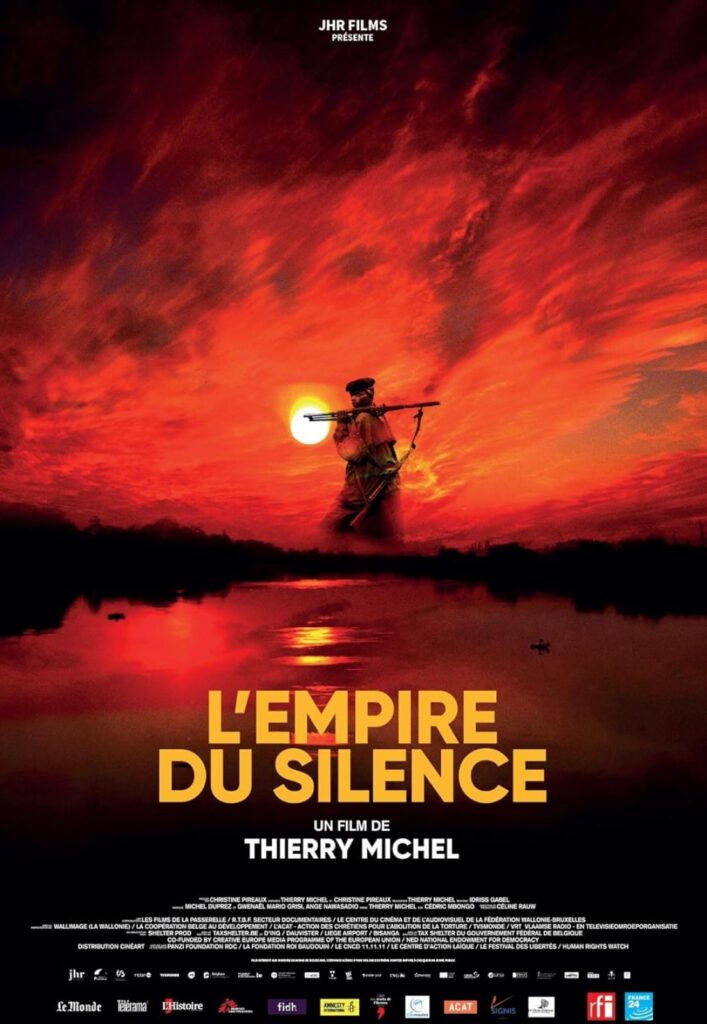
L'empire du silence
The Democratic Republic of Congo has been torn apart for twenty-five years by a war largely ignored by the media and the international community. An in-depth documentary of two assassinations that occurred in the Democratic Republic of Congo in March 2017.
Videos
Two years ago, the M23 militia went on the offensive again in the east of the Democratic Republic of Congo. This armed group controls part of the North Kivu region, massacring and expelling civilians and waging a merciless war against the authorities. A report on a forgotten conflict.
A poignant documentary that sheds light on the ongoing humanitarian crisis in the Democratic Republic of Congo (DRC), particularly in its eastern region. Through a compelling 28-minute narrative, the film delves into the lives of individuals who have been internally displaced due to persistent inter-communal militia attacks and military operations, unraveling the profound impact of the conflict on the Congolese people.
BBC Africa take a deep dive look into the conflict in the DRC. Note: This video is age-restricted and only available on YouTube.
Conflict in Congo is a decades old story. However, with tensions rising yet further and more regional powers being drawn in, the question is if the conflict could spill out further.
The resurgence of violence in the Eastern DRC is the latest in a series of conflicts that has made it one of the longest humanitarian crisis in the world. They shine a light on this conflict and why the world should pay more attention.
With GDP per capita of just $2 per day, the Democratic Republic of the Congo is one of the poorest, if not the poorest nation on Earth. However, this does not have to be the case. So why is the DRC so poor?
Masika Katsuva started a village in the DRC for rape survivors in early 2000, providing sanctuary for women and children displaced and traumatized by the country’s conflicts.
Bukavu, a city in the Democratic Republic of the Congo, is slowly emerging from a long, violent conflict that has spared no one. PBS reports on how health workers and local law enforcement are struggling to confront a brutal epidemic of sexual violence perpetrated against even the youngest of girls.
Podcasts
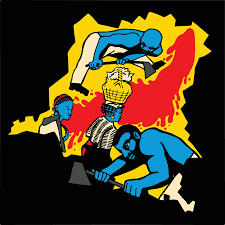
A deep dive into the Democratic Republic of the Congo, and in doing so, explore why this resource-rich country is as impoverished and as immiserated as it is. And we’ve brought on the perfect guest to talk us through it all.
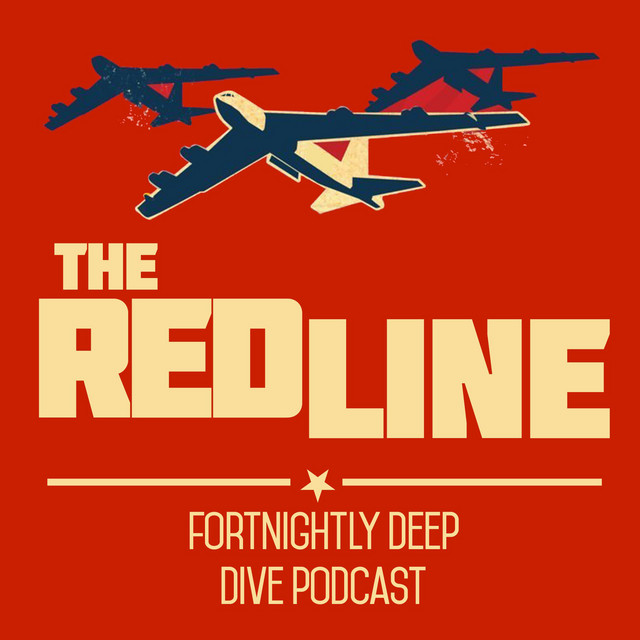
The DRC holds the vast majority of the world’s Cobalt, and the country has become a vital part of the global supply chain, but how safe is that? Are we betting the entire future of Green tech on a country already barreling toward war, floods, and civil conflicts?
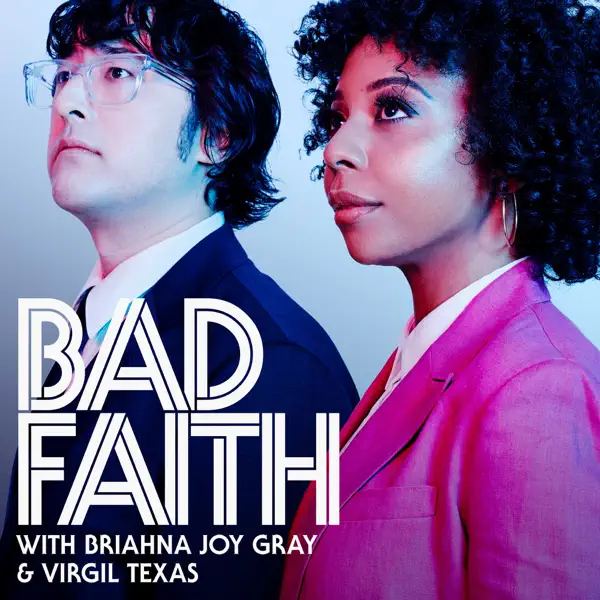
Clashes between armed groups, resource wars, a post-colonial legacy of foreign interference — Jason Sterns and Christoph Vogel join Bad Faith to provide some context to this crisis and explain why the DRC has been so overlooked.
